ACDI’s research aims to increase the scientific knowledge and understanding needed to improve human development outcomes in the face of climate change. Our multi-scale research is anchored in South Africa, but extended via collaboration to southern Africa, and the wider African continent, with an additional eye on South-South and South-North collaboration beyond Africa.
ACDI aims to be societally relevant. We not only respond to stakeholder evidence needs, but also pose new questions whose answers might shift societal perspectives and agendas. ACDI’s research approach is founded on the recognition that the development and climate change nexus presents complex, even “wicked”, problems that are best answered in an integrative, interdisciplinary and transdisciplinary setting. Such a setting has the potential to enable and stimulate cross-fertilisation of diverse viewpoints and the production of new knowledge.
View our current project and past project lists below. If you are interested in engaging or collaborating, please contact us.
Current projects
-
AfDB Decision Making
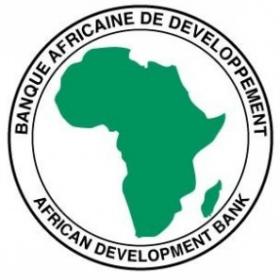
Enhancing the Capacity of African Countries to Use Climate Information to Inform Decision-Making
The ACDI is leading the development of a Climate Information Project, which was designed in response to a call by the African Development Bank (AfDB) to develop a set of updated climate change assessments for 25 African countries. The purpose of these climate change assessments is to support improved decision-making within AfDB by integrating considerations of climate change, including country-specific priorities for climate change mitigation and adaptation, into the design and risk management strategies of future projects in Africa. In addition to supporting improved integration of climate change into the Bank's ongoing activities, the climate change assessments will be publicly available for use by other stakeholders - inter aliagovernment, academic researchers and project developers - to guide the development of Country Strategy Papers, sectoral policies, analytical work and project-level decision-making. The ACDI will lead an inter-disciplinary team of experts in the fields of climate change vulnerability analysis, modelling and analysis of climate systems, and quantification of greenhouse gas emissions. Project partners include representatives of UCT’s Climate Systems Analysis Group and the Energy Research Centre, respectively, as well as private consultants from the Cirrus Group.
-
ARUA Centre of Excellence in Climate & Development
Africa’s existing socioeconomic development challenges will be greatly compounded under climate change. The fundamental twin challenge is to enable development that is (i) resilient to existing and expected climate risks and impacts, and (ii) low carbon, avoiding substantial African contributions to the amount of global warming in the future: this challenge has been variously termed “climate compatible development” of “climate resilient, low carbon development”
ACDI is the secretariat for a regionally distributed ARUA Centre of Excellence in Climate & Development (ARUA-CD) that will undertake research, training and influencing to substantially contribute to achieving sustainable development goals in the face of climate change. The initial ARUA-CD hub partners are UCT (CoE Secretariat and Southern African regional hub), University of Ghana (West African regional hub) and University of Nairobi (East African regional hub).
-
AXA Research Chair in African Climate Risk
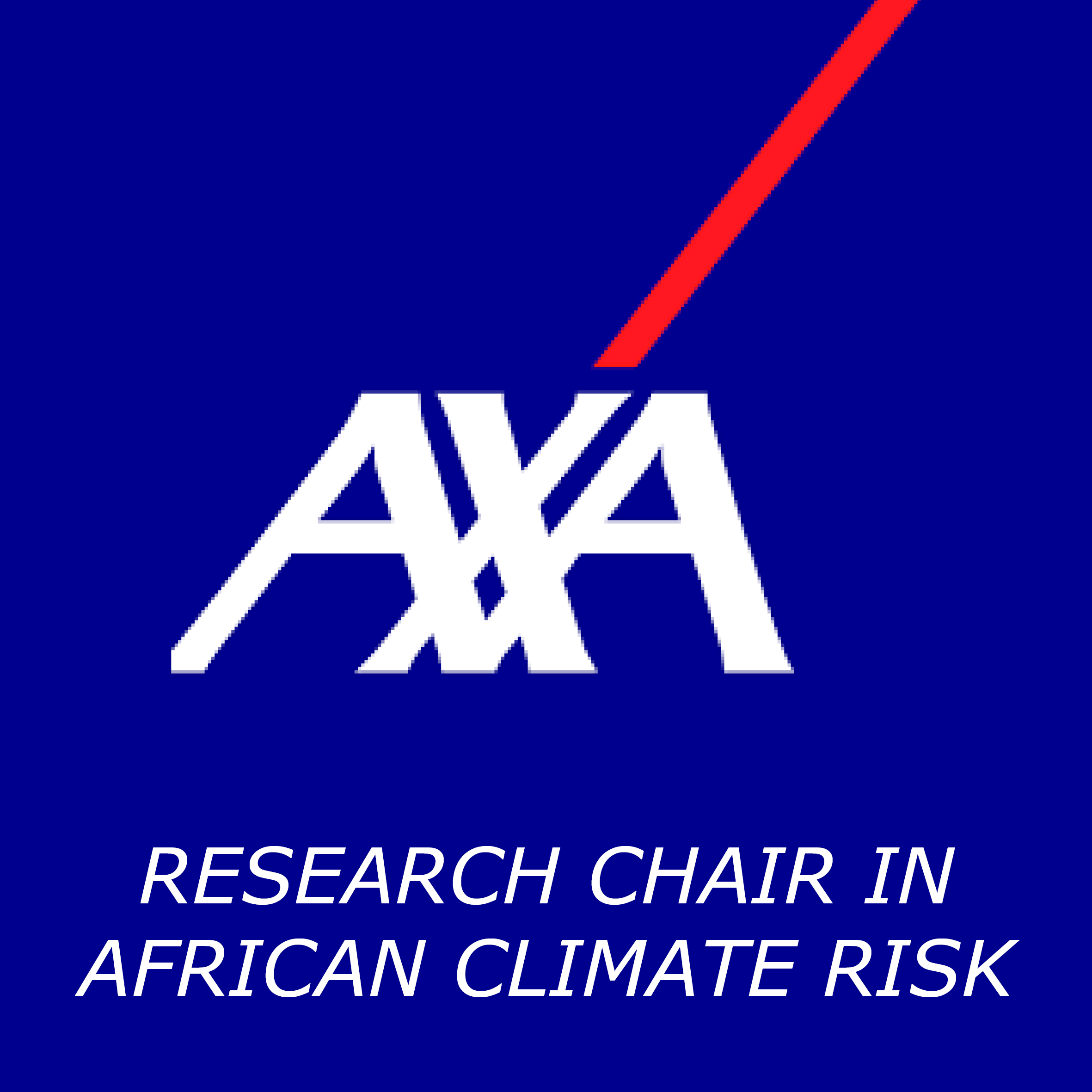
The overall AXA Successional Chair Programme aims to make a step change in the research field of African Climate Risk. The format is a succession of four Research Chairs who will undertake discrete research programmes over 5-year tenures. Each Chair will undertake research at the cutting edge of knowledge in their domain of expertise – within the broader successional programme – aligning with priorities in understanding, reducing and managing African climate risk emerging at the time of their tenure.
Professor Mark New is the first AXA Chair in African Climate Risk. The focus of his research programme is on quantifying and understanding the changing risk of climate on water and food security in southern Africa. It brings together expertise in climate and weather risk attribution, statistical sciences, hydrological and agricultural sciences, and economics to: (i) quantify the human influence on both climate risk and hydrological/agricultural system exposure; (ii) to apportion socio-economic damage between these human influences and natural processes; and (iii) to evaluate the return on investment – both financial and human – of mechanisms to reduce the sensitivity of exposed water and food systems to climate change. Close interactions with public, private sector and civil society organisations during the programme will help to maximise the societal impact of the research.
The Successional Chair Programme is aligned with the long-term research strategy of the University of Cape Town, which aims to produce original, scientifically innovative, internationally competitive research on Africa in the global context, and attract the best African talent to return to or remain in Africa, working on issues critical to the social and economic development of the continent.
-
Defining South Africa’s climate change adaptation research agenda
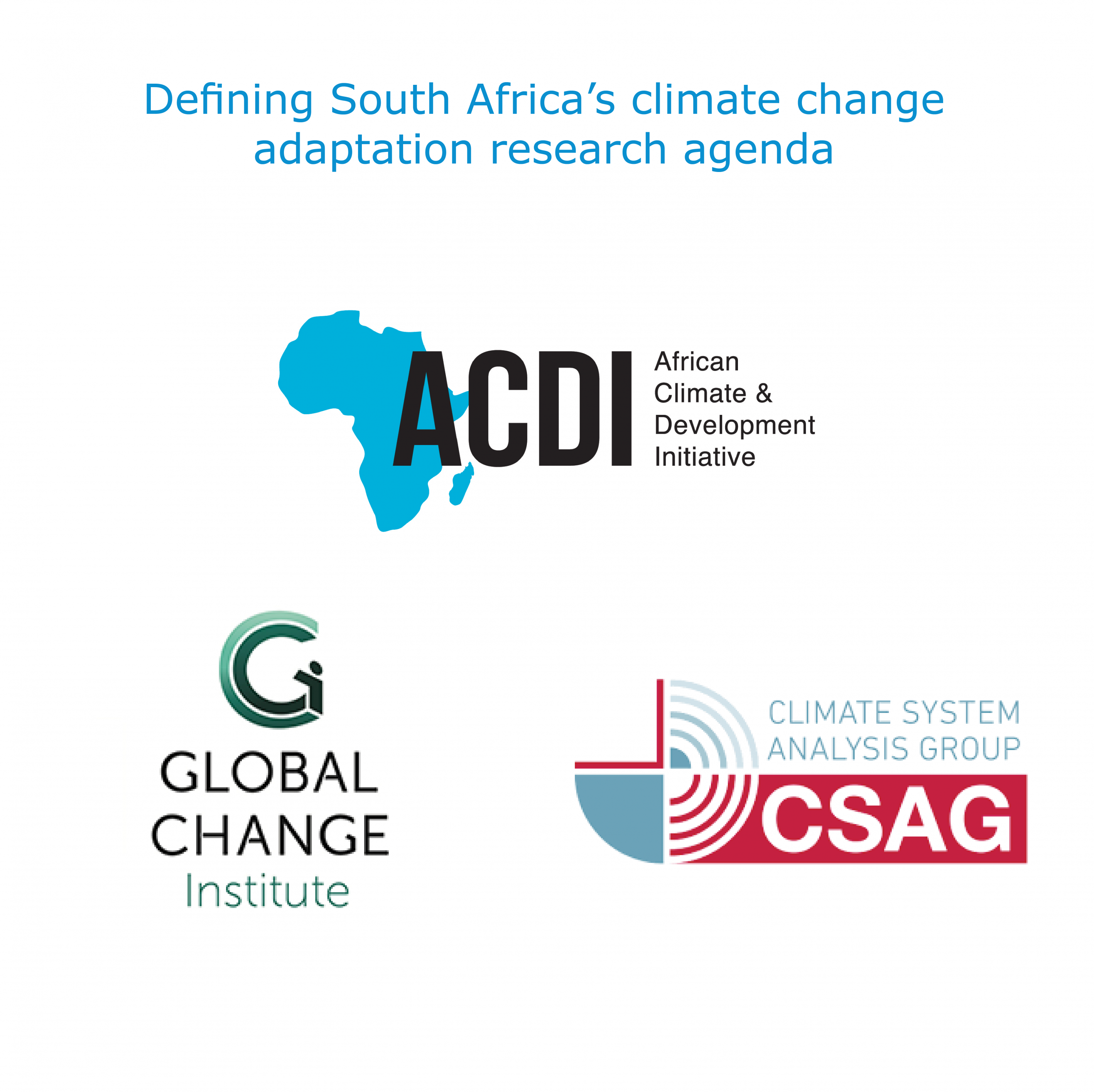
This project is funded by GIZ through the Department of Environmental Affairs. It is led by ACDI, in partnership with the Climate Systems Analysis Group . The aims and objective of this research are to inform the scope of work and research agenda for Phase Three of South Africa’s Long-Term Adaptation Scenarios (LTAS) Flagship Research Programme. Furthermore, the assignment provides a practical, evidence-based assessment of the effectiveness of the preceding LTAS phases and the degree to which emerging research has been integrated into ongoing processes for adaptation planning. Finally, the project aims to generate clear, practical recommendations to support the effectiveness and uptake of further research in priority adaptation-related themes.
The programme of work is being delivered through a multi-stage approach based on:
- Updated review, collation and analysis of the existing body of research on climate change adaptation.
- Bilateral consultation and interviews with key national stakeholders and experts.
- Multilateral stakeholder consultation and facilitation of expert discussions in dedicated workshop.
- Synthesis of research gaps and needs to inform the thematic and sectoral research agenda of the upcoming LTAS 3.
-
IFAD Multi-country climate-risk analysis

This project aims to assess the potential impacts of climate change on specific rainfed agricultural commodities and value chains in eight African countries, based on application of downscaled climate scenarios and GIS-based tools for modelling current and future crop suitability.
The project’s outputs will inform government and bilateral agencies in the target countries of the likely impacts of climate change on the production and productivity of key agricultural commodities, as well as the subsequent impacts on agricultural households and national agricultural economy.
In addition to identifying and quantifying the potential risks of climate change to the selected value chains, the study will also aim to generate recommendations on technological shifts that may be required for effective adaptation to climate change.
The project contributes to the following programmatic outcomes of the project sponsor, the International Fund for Agricultural Development (IFAD):
- Climate informed investments and planning through the recommendations on priority actions to manage climate risks in specific value chains.
- Climate risk awareness, policy engagement and knowledge management through the country profiles that will inform national strategies and training of technicians.
- Inform National Adaptation Plans, where these are still being developed or updated, through identification of potential options for adaptation.
- Building capacity of national counterparts in climate risk analyses through training seminars and workshops.
-
Biophysical and economic impacts of hydroclimatic extremes

This project is led by the Environmental Change Institute at University of Oxford in partnership with ACDI Director Prof Mark New, under his AXA Chair in African Climate Risk. This research brings together cutting-edge climate change attribution and impacts science to develop methods that can apportion the socio-economic costs of climate change between local factors that affect sensitivity to climate change and global-scale human forcing of climate that changes the risk of climate extremes. The methods will be developed and tested for drought and flood impacts in South Africa, but results will be applicable to a wider range of climate change loss and damage situations across the world.
Through this project, researchers will undertake joint attribution of human influence on both climate and system exposure, within the context of drought and flood. Research will be based in two river catchments in South Africa, the Berg in the Western Cape and Umgeni in Kwa-Zulu Natal; both have good climate, hydrological, biophysical and socio-economic data. South Africa is a good case for exploring loss and damage in a developing country context, as it faces similar climate risks and vulnerabilities to other sub-Saharan countries.
The project has the following specific objectives:
-
Attribute human influence on the risk of hydrologically significant (drought and flood) rainfall extremes.
-
Attribute human influence on catchment sensitivity to hydrologically significant rainfall extremes.
-
Jointly attribute the relative contribution of (1) and (2) on changing risk of significant droughts and floods.
-
Estimate the economic damage of drought and flood that can be attributed to human influence on climate and catchment sensitivity.
-
Estimate the social and economic benefits of adaptations to reduce catchment sensitivity.
-
-
Future Resilience for African Cities and Lands (FRACTAL)

Future Resilience for African Cities and Lands (FRACTAL) is a four-year project within the multi-consortia Future Climate for Africa (FCFA) programme. This project addresses the challenge of providing accessible, timely, applicable and defensible climate information that is needed by decision-makers operating at the city regional scale in southern Africa. This project is managed out of the Climate Systems Analysis Group in collaboration with multiple partners, including the ACDI .
One of the main scientific problems for understanding southern Africa’s climate is that different models give contradictory scenarios for climate trends over the next 5 - 40 years. Through a transdisciplinary learning approach and scientific research FRACTAL is contributing to an improved understanding of climate processes, and regional and local climate trends that drive the southern African climate system’s natural variability and responses to change within that system.
The project engages with scientists, engineers, government representatives and other stakeholders. Working together, the researchers and stakeholders are co-producing relevant knowledge that will support resilient development pathways and enable decision-makers to better integrate pertinent climate knowledge into their resource management decisions and urban development planning.
-
Socio-Economic Benefits of Ecological Infrastructure (SEBEI)

The overall objective of this innovative, transdisciplinary research project is to develop an evidence-based integrated framework and prototype “investment case” for strengthening water-related Ecological Infrastructure (EI) while: i) supporting well-functioning livelihood strategies/value chains; ii) creating new livelihood opportunities and value chains; and iii) reducing hydroclimatic risks.
Started in July 2018, SEBEI aims to generate new knowledge by combining livelihoods and value chain analysis with an EI approach to water management and next-generation hydroclimatic modelling at optimal spatial resolution (see our work packages). With this combined approach, our interdisciplinary project team will focus on developing a more sophisticated conceptualisation of the linkages between EI and livelihoods. Hence, we will investigate how people might benefit from a strengthened and cost-effective water supply system realised through optimised restoration and rehabilitation of EI with income-creating co-benefits.
-
Transforming Energy Access - Learning Partnership (TEA-LP)
The Transforming Energy Access - Learning Partnership (TEA-LP) aims to support higher-education institutions based in Africa in the development of new curricula centred on the theme of sustainable energy access for all.
The Learning Partnership is one of ten initiatives being supported by the Transforming Energy Access programme (TEA), funded by the Department for International Development of the United Kingdom (DfID) and managed by the Carbon Trust.
The TEA programme aims to foster the development of innovative technologies, business models, partnerships and skills that will accelerate access to affordable, clean energy services for households and enterprises in developing countries.
-
UCT - UEA Newton PhD Partnership on Understanding the Climate system and Coping with Climate Change

The developing world is projected to suffer disproportionately from the effects of climate change. Many uncertainties remain in the likely conditions the world will experience, for example in local rainfall, and the effects of such changes on agriculture, fisheries, and health and industrial development. It is today's early career researchers who will be tasked with tackling these challenges in future. To generate the skilled people necessary, we proposed an international PhD partnering between the University of Cape Town (UCT) and the University of East Anglia (UEA) in the areas of (1) understanding the climate system, including the ocean and atmosphere, and (2) developing capacity to cope with a changing climate.
The partnership will exchange PhD students in the fields of climate science (e.g. climate modelling, ocean science, atmospheric science), climate impacts (e.g. social science, international development, human health, agriculture, fisheries) and adaptation strategies. UEA and UCT are two universities with strong expertise in these disciplines. These strong and complementary centres and academics are brought here together in a formal arrangement for the first time. The PhD researchers will benefit from strong expertise in both UEA and UCT in a range of key and modern methods. They will learn the skills needed to fully develop as researchers and operate in a global research environment in their field. Our partnership includes world experts in the measurements of ocean currents, marine biogeochemistry and ecology, fisheries survey, and atmospheric trace gases, as well as experts in conducting fieldwork on climate change adaptation and on epidemiology. We also have expertise in the synthesis and analysis of global datasets such as the global temperature (CRUTEM) and global ocean CO2 (SOCAT), and expertise in the modelling of physical climate, biogeochemistry, and integrated assessments of impacts and adaptation options.
-
University Staff Doctorate Programme

The University Staff Doctorate Programme (USDP) is a programme by the South African Department of Higher Education (DHET) which aims to develop collaborative professional development opportunities for staff in higher education institutions in South Africa and the United States. It consists of several projects each with a different thematic or disciplinary focus.
ACDI is leading a USDP project which brings together South African and United States universities to help transform South African academic expertise relating to ‘Climate risk, resilience, and sustainable development’ (2018 – 2023).
The partnership includes the University of Cape Town, University of Fort Hare and University of Venda from South Africa, and the University of Arizona and Penn State University from the United States.
The project aims to support 10 high caliber South African university staff (of which 80% will be black and/or women) to obtain PhDs in fields related to climate risk, resilience and sustainable development, and applied to a South African context. These 10 candidates will be selected from UCT, UNIVEN and UFH staff.
-
Urban ARK

Urban Africa: Risk Knowledge (Urban ARK) is a 3 year research and capacity building programme funded by DFID and ESRC. The programme is led by King’s College London with Professor Mark Pelling as Principal Investigator. The work seeks to open up an applied research and policy agenda for risk management in urban sub-Saharan Africa.
-
WEF - Exploring the Evidence of Water-Energy-Food Nexus Linkages to Sustainable Local Livelihoods and Wellbeing in South Africa


Essential natural resources such as water, arable land and biodiversity assets are being overused and degraded in many parts of the world, necessitating the move towards an integrated approach to natural resource management (e.g. Rockström et al., 2009; Vorosmarty et al., 2010; Cole, 2014). The Water-Energy-Food (WEF) nexus is a framework that captures the inter-relations, synergies and trade-offs between the demand on water, energy and food, in the context of the emerging constraints of sustainable development in particular regions or systems (Scott et al., 2015). Nexus thinking is based on a systems approach and often uses the socio-ecological system as primary point of reference. The WEF nexus is argued to be valuable for understanding complex systems, and for decision making to achieve macro-scale sustainable development. However, the ultimate measure of success for achieving sustainable development is measured at a different scale, namely, the improved livelihoods and well-being of individuals and households. So far, nexus research has remained weak in identifying how the nexus is interlinked with livelihoods (Biggs et al., 2015). In the South African context, a deeper understanding is needed of how the nexus framework can assist in building livelihood resilience across the socio-economic spectrum, and in shifting towards a sustainable economy.
This project aims to fill the identified knowledge gap, by exploring how the nexus plays out in affecting local livelihoods and wellbeing, and how this understanding can support more equitable sustainable development outcomes at the household level.
-
World Universities Network

The ACDI is a member of the World Universities Network (WUN) – a global network that harnesses the diverse strengths of 23 leading comprehensive research universities, spanning 13 countries on six continents, to advance the frontiers of higher education and research.
Past projects
-
Adaptation Futures 2018
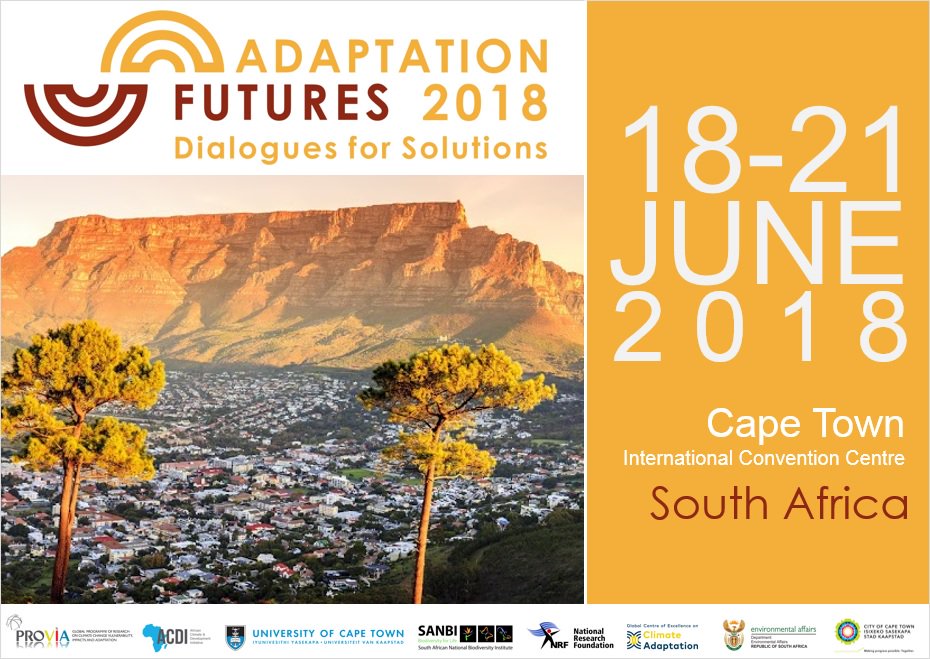
Adaptation Futures 2018, the fifth in the Adaptation Futures international conference series on global adaptation, was held in Cape Town from 18 -21 June. The conference aimed to facilitate Dialogues for Solutions between key actors from diverse perspectives and regions and attracted over 1300 scientists, practitioners, business leaders and policymakers from around the world. This is the first time the conference was held on the African continent. We used this setting to foreground developing country adaptation issues and increase developing world participation. Funding was raised to support the access of over 180 sponsored delegates from lower income countries and/or Africa.
-
Adaptation at Scale in Semi-arid Regions (ASSAR)
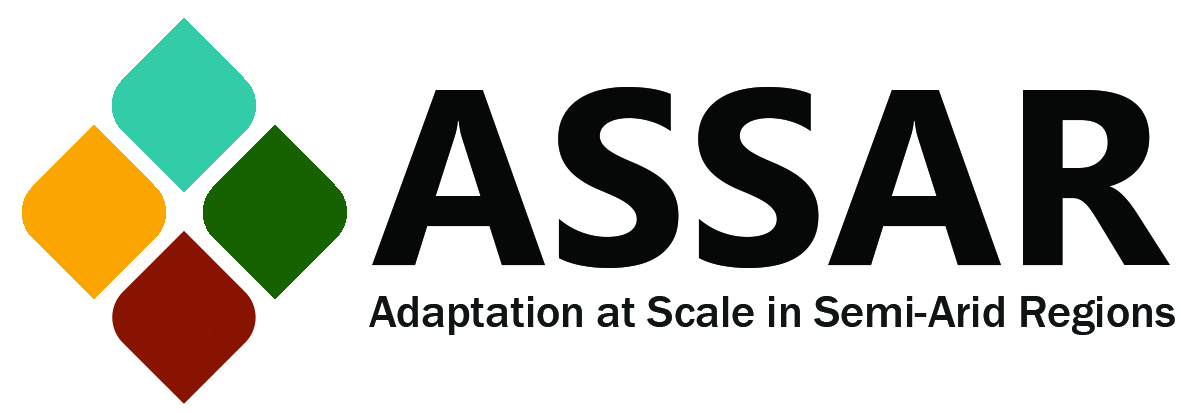
Working in the semi-arid regions of Africa and India, the five-year (2014-2018), multi-institutional and multi-scale ASSAR project combined interdisciplinary scientific research (at regional and thematic levels), capacity building, and stakeholder engagement to improve understanding of the barriers and enablers to effective climate adaptation. Our work centred on informing climate adaptation policy and practice in ways that advance the agency and long-term wellbeing of the most vulnerable.
ASSAR was a project within the CARIAA (Collaborative Adaptation Research Initiative in Africa and Asia) programme, funded by IDRC and DFID.
-
Berg River Climate Knowledge Network (CKN)
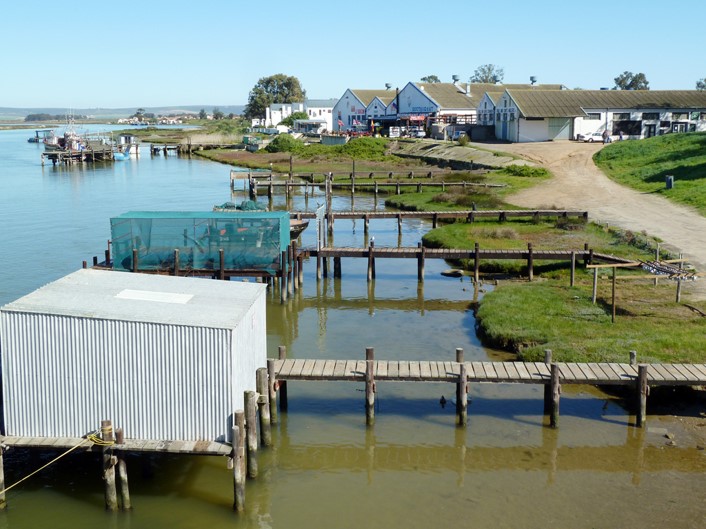
This project brought together a network of academics, practitioners and civil society members working within the ambit of the Bergrivier Municipality, to facilitate knowledge sharing, relationship building and applied interdisciplinary research. The CKN was born in 2012, with an original group of 23 members, comprising academics from various departments at the University of Cape Town, those working in both local and provincial government, and various civil society and industry representatives. The groups’ initial focus was on the Bergrivier Local Municipality, situated in the greater West Coast District in the Western Cape.
-
China and South-South Scoping Assessment for Learning and Development (CASSALD)
CASSALD was part of a larger initiative, Adapting to Climate Change in China (ACCC). The ACCC is an innovative policy research initiative focusing on linking climate change research with policy making and development. ACCC started in June 2009 as a collaboration between UK, China and Switzerland; it is funded by DFID China, the Swiss Agency for Development Cooperation, DFID Research and the UK Department for Energy and Climate Change (DECC).
The overarching aim of Phase 1 of the China and South-South Scoping Assessment for Learning and Development initiative was to identify key opportunities and avenues for South-South learning and climate compatible development and how to best channel resources to share China and developing countries' experiences of integrating climate adaptation into the development process. This project was implemented in ten countries across three regions including Africa (Angola, Ethiopia, Kenya, South Africa, Rwanda); Asia (Bangladesh, Nepal, Indonesia) and the Caribbean (Grenada, Jamaica).
The ACDI worked in collaboration with Intasave to contribute to the South African case study.
-
Climate Impact Research Capacity and Leadership Enhancement in Sub-Saharan Africa (CIRCLE) programme

CIRCLE was an initiative of the Department for International Development (DFID) of the United Kingdom (UK) to develop the skills and research output of early career African researchers in the field of climate change and its local impacts on development. The programme ran from late 2014 to early-2018, with cohorts in 2015, 2016 and 2017. CIRCLE was managed and implemented by the Association of Commonwealth Universities (ACU) and the African Academy of Sciences (AAS).
UCT, through the ACDI and the Research Office (specifically the Emerging Researcher Programme) hosted 3 CVFs each year (2015, 2016, 2017). The CVFS were junior academics from other participating universities on the continent. Each CVF was supervised by a UCT academic staff member. Each CVF undertook unique research projects under the broad theme of climate change impacts in Africa. As the tenure of each fellowship is 1 year, the CIRCLE Visiting Fellows were based at UCT until December each year after which they returned to their home institutions, to continue their research.
-
Community Adaptation Small Grants Facility
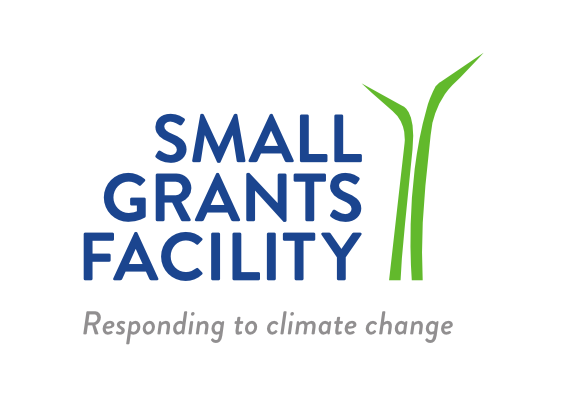
The key aim of this research project was to increase understanding of the role of international funding in developing countries in supporting climate change adaptation (CCA) across scales and, especially, on the ground. Three questions informed the research:
- How do we track and measure the change in adaptive capacity of beneficiaries and implementers as a result of CCA programmes?
- What is the effectiveness of CCA projects implemented by local organisations with international funding?
- What are the barriers and opportunities for ensuring that international funding for CCA benefits vulnerable groups?.
The study was based on a review of existing literature and extensive fieldwork. The programme: “Taking Adaptation to the Ground: A Small Grants Facility for Enabling Local Level Responses to Climate Change" served as the case study for analysis.
This research linked to a number of other ACDI projects that are asking similar questions (e.g. ASSAR). furthermore, it contributed to the advancement of research in the field (e.g. through publications). The project increased understanding of what constitutes an effective institutional configuration for CCA in developing regions, both in terms of the kind of organisations that are most conductive to successful implementation of CCA strategies and the configurations that support effective transfer of fund from international to local level.
-
Food, Energy, Water, Land-Use & Biodiversity Nexus (FEWLB)
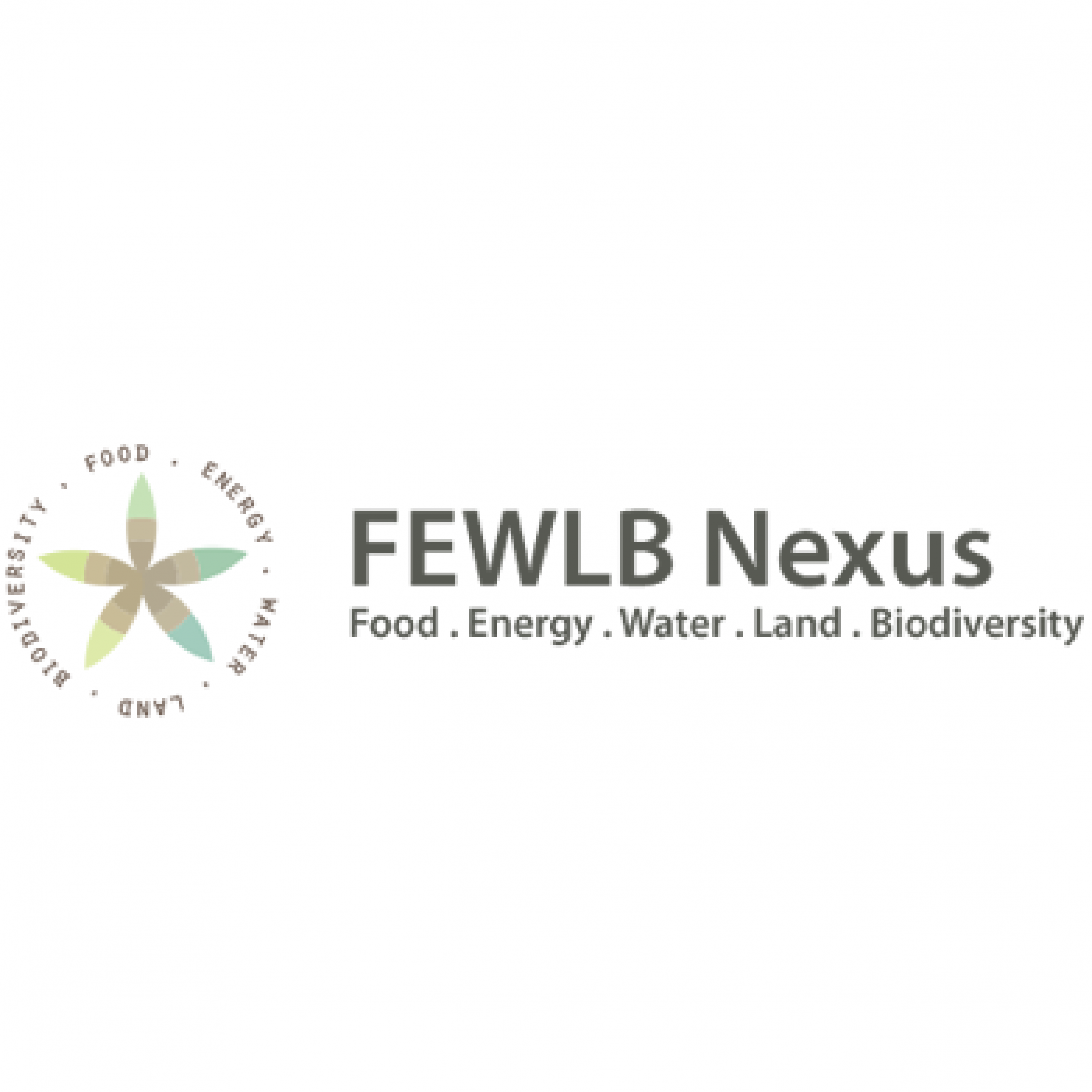
The Food Energy, Water, Land and Biodiversity Nexus, was a 3 phased project that looked to inform decision making and project development to foster sustainable resource use and development within the Berg River Catchment area. The project was funded by the British High Commission and the Cape Higher Education Consortium (CHEC).
The Berg River catchment represents an excellent example of a resource under pressure at the nexus of water, food and energy. Pollution in the Berg River catchment, however, is a cause of great concern especially to communities, farmers and industry in the various municipalities of the West Coast and Cape Winelands regions. Various stakeholders have implemented initiatives to address the pollution concerns raised. In addition, there is increasing concern that the water will not be adequate in future to service the entire region – in particular, that the planned industrial development at Saldanha will not be possible with the predicted future resource unless the management of that resource is changed significantly. It must be noted here that, in relation to government powers and functions, the Berg River extends across all three spheres of government.
Given the fact that the nexus between food, water and energy represents a complex system, cooperation between the WCG, Berg River stakeholders and the academic institutions in the province becomes increasingly important. A number of studies are already focused on the Berg River/Saldanha area. The work contemplated in this research proposal is not intended to duplicate what is already underway, but will add to and complement current research work; it is also anticipated that while formal agreement on the research agenda proposed here may be reached within the CHEC context, funding for a large part of the research will have to be found from other sources.
-
Fulcrum Institutions and Sustainability Programme (FISP)

The Environmental Security Group work within the Centre for Criminology to understand how the governance environment shapes environmental risk and societies exposure to it. In particular, the Fulcrum Institutions and Sustainability Programme was a three-year South African National Research Foundation (NRF) ‘Global Change, Society and Sustainability’ (GCGC) grant. The progamme investigated the governance of environmental change and how society is, and can, adapt to the myriad threats presented by climate-risk both in South Africa and elsewhere. The programme explored how ‘fulcrum institutions’, those institutions with the capacity to lever large-scale societal change, can be enrolled to help realise sustainable solutions in the face of global environmental change. The ‘fulcrum institutions’ under investigation included the global insurance and financial industries, local municipal governments and the key commercial resources industries. The programme drew upon mutually beneficial strategic partnerships with key stakeholders within each of the sectors it engaged, as well as research partnerships with a number of academic institutions and non-profit organisations. Based on promoting reciprocal partnerships, the programme's outputs not only included academic publications, but also active contributions to policy development, and broader engagement with civil society.
-
Fostering Local Well-Being (FLOW)

The FLOW project was a two-year long research project that took place in two South African municipalities – the Greater Kokstad Municipality in KwaZuluNatal, and the Bergrivier Municipality in the Western Cape, from August 2014 – September 2016. The project engaged out-of-work, out-of-school local youth – the FLOW Ambassadors – to build both individual and community capacity to thrive and innovate in the face of the growing challenges of climate change, resource depletion and inequality. Key activities included asset mapping, local storytelling on mobile phones, personal development, local government engagement and the introduction of two community currencies. Flow produced several resources which can be accessed here.
-
Global Islands' Vulnerability Research, Adaptation, Policy and Development Project (GIVRAPD)

GIVRAPD was a project led by the CARIBSAVE Partnership and funded by the CDKN.The project was designed to utilize a common community-based vulnerability assessment (CBVA) framework to integrate scientific and local knowledge from comparative 'learning sites'. The aim was to understand the multi-scale socioeconomic, governance and environmental conditions that shape vulnerability and capacity to adapt to climate change within and between small and medium-sized coastal communities. The objectives were to address key data and knowledge gaps, develop and evaluate practical local adaptation and climate compatible development (CCD) portfolios, facilitate the mainstreaming and scaling-up of adaptation and CCD, establish scientific and professional networks and build capacity.
he ACDI was one of the partners working on the GIVRAPD project. They provided research assistance to undertake the CBVA's as well as contributing to the climate science aspect of the project and the downscaling of climate models for each case study site.
The project set the following specific objectives:
- Address key data and knowledge gaps that have been a barrier to assessing vulnerability and community dialogue on climate change adaptation.
- Develop and evaluate practical local adaptation and climate compatible development portfolios that address community needs and avoid maladaptation.
- Facilitate the mainstreaming and scalingâup of adaptation and climate compatible development into larger planning initiatives related to sustainable development.
- Establish scientific and professional networks, build capacity and empower communities.
- Examine and assess microâinsurance as a viable adaptation and climate compatible development strategy.
-
GreenSkills: Building capacity for a sustainable future

Green Skills was a project of the National Environmental Skills Planning Forum and the Green Fund. The Green Skills project worked to facilitate a more proactive approach to green skills planning in South Africa, focusing on a system-based approach to capacity building.
The Green Economy is a key driver for green skills development. This transformative economy is often seen as having the potential to create large numbers of green jobs, but these have not been quantified and there has been little associated skills planning. Key components of the project included a scoping study of green skills research and planning methodologies and approaches; training materials and training programme; a toolkit for organisational development that helps to unlock, plan and budget for green jobs & greening of jobs along the value chain of an organisation or sector.
-
Mitigation action plans and scenarios (MAPS)
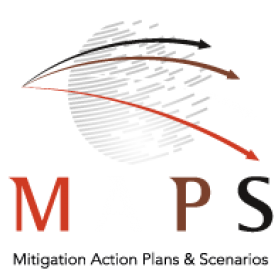
MAPS combined facilitated stakeholder processes with research. The programme supported South-South collaboration between developing countries in their plans to implement more ambitious mitigation actions. The ERC, in collaboration with SouthSouthNorth, focused on supporting researchers in MAPS countries in analysing actions and how that can contribute to achieving targets and overall reductions in the growth of emissions. MAPS built on the experience of South Africa’s long-term mitigation scenarios. MAPS activities in each country crucially included a participative process with stakeholders from all sectors. In this sense, MAPS was not only another research study – but the information was produced in partnership with the best indigenous and international research. It strongly built on existing in-country research capacity, feeding information into a national process run by the country.
-
Measurement and Performance Tracking (MAPT)
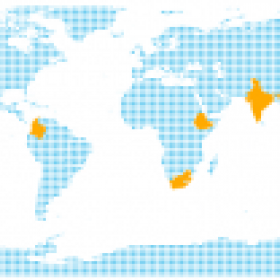
The World Resources Institute (WRI) led the Measurement and Performance Tracking (MAPT) initiative in six developing countries, including South Africa. The goal of this project (managed by the Energy Research Centre) was to work in partnership with national actors to build capacity and promote shared perspectives and readiness among key stakeholders on the design and implementation of credible systems to make mitigation actions by developing countries measurable, reportable and verifiable (MRV), at the national, policy, and industry levels.
In 2013 the Energy Research Centre undertook 3 case studies relating to MRV in South Africa. These case studies, on co-benefits of mitigation actions, the domestic MRV system in South Africa and an examination of the solar water heater roll out in South African can be found on the WRI MAPT website. For general information on the project and other resources, visit the WRI website here.
-
Pro-poor Value Chain Development Project (PROSUL)

The ACDI consulted on the Mozambique Pro Poor Value Chains IFAD funded Project (PROSUL). The project undertook a climate change risk analysis on agricultural value chains from March – August 2016. The thematic study identifed suitable local adaptations related to horticulture, cassava and red meat value chains. It also identified key institutional responses that need to be undertaken to support actions on the ground that will make the required adaptations viable. The technical approach was consultative, drawing on local expertise and endogenous agricultural knowledge and experience as much as possible.
-
Problems and Solutions for Climate Change Resilience and Adaptation in Mozambique
Local communities in Mozambique, and those who support them in government and non-governmental organisations, are faced with the challenge of adapting to the effects of climate change and variability. These effects are expected include changes in the frequency and severity of floods, droughts and cyclones. In particular, sustainability within the agricultural sector is threatened by both the current and future effects of climate change, with implications for livelihood and food security. Farmers and other agricultural practitioners are recognised for their applied knowledge, and ability to respond and survive to what they have experienced, while managing risk responsibly. However, localised risk management and production practices are under pressure from the uncertainty, magnitude and frequency of climate change impacts, coupled with other developmental and social complexities. It is therefore necessary for the relevant government line departments and institutes and international development organisations working in Mozambique to provide tailored, usable knowledge about adaptation responses to stakeholders across the agricultural value chain.
As stated in Mozambique’s National Adaptation Programme of Action, increased knowledge of appropriate adaptation responses, tailored to different users, is needed to reduce climate-related risks to human life and property. Ideally, this knowledge should be managed systemically to foster learning and innovation between multiple stakeholders over time. Additionally, extension and awareness-raising initiatives should be informed by strategic inputs from the private and public sector stakeholders at local, regional and national levels. Local, regional and national adaptation strategies and responses should be informed by: i) scientific knowledge of current and future climate impacts; ii) existing institutional knowledge; iii)relevant external knowledge about adaptation in other countries or settlings; iv) diverse community inputs, including those of women; and v) the applied expertise of practitioners such as small-scale and commercial farmers.
For this inclusive, robust approach to be developed, sectoral studies are required to understand current knowledge systems, products and structures that deepen the understanding of vulnerabilities and enable appropriate and effective adaptation responses. Agriculture is one of the most important sectors in Mozambique in terms of supporting livelihoods, ensuring food security, and creating jobs, and is, therefore, the focus of this project. However, many of the insights and recommendations that arise from an agricultural focus will be directly relevant to climate adaptation in other sectors.
-
Smart Agriculture for Climate Resilience (SmartAgri)

The Smart Agriculture for Climate Resilience (SmartAgri) project was a collaborative project between the Western Cape Department of Agriculture (DOA) and the Western Cape Department of Environmental Affairs & Development Planning (DEA&DP), and the University of Cape Town’s African Climate and Development Initiative (ACDI). SmartAgri has provided a road map for actionable and prioritised initiatives that will take the agricultural sector road towards greater resilience in the face of climate challenges.
-
Smallholder Agribusiness Development Project (SADeP)

The ACDI conducted a risk analysis of various agricultural crops in Angola for the Smallholder Agribusiness Development Project. The overall programme included specific activities to improve the nutritional status of households and build resilience to the effects of climate change at all agricultural levels. The objectives of the risk analysis were to: i) consider the potential impacts of projected climate change on the selected value chains (coffee, sisal, sugar, cotton, maize, bananas, legumes and grazed livestock production) using modelling approaches and GIS tools; and ii) make recommendations on how to manage the climate risks for the aforementioned value chains and increase the resilience of small scale farmers in Angola’s rural communities.
-
Saldanha Bay Municipality Scenario Building: a road to sustainable growth and development?
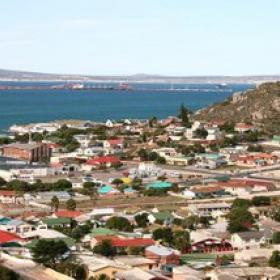
The project aimed to bring together stakeholders from a spectrum of social, economic, environmental and political backgrounds that are involved in economic development in the Saldanha Bay area for a scenario building process. The view was to facilitate a process of knowledge-sharing and collaboration between the stakeholders in order to begin to develop an integrated, common vision for sustainable economic development in the area. The project was envisioned as the first stage in the development of this integrated vision: its results will be used to develop a funding proposal for taking forwards the process of developing scenarios for the sustainable economic development of the Saldanha Bay area.
-
SARUA Master’s Curriculum Development and Capacity Building Project
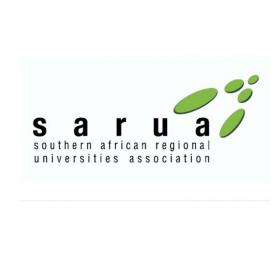
The ACDI was the lead partner in a consortium of southern African universities that recently developed a Master’s curriculum in ‘Climate Change and Sustainable Development’. The curriculum is available to SARUA member universities to adapt and deliver, either as a self-standing Master’s level course, or as part of an existing course that wishes to bring in strong climate change components. The associated online platform will serve as a publishing platform for new research in the southern African region, enabling knowledge sharing and supporting a community of practice in the field of climate change and sustainable development. Academics interested in registering on the platform, can do so here.
-
Scientific Capacity Development (SCD) study
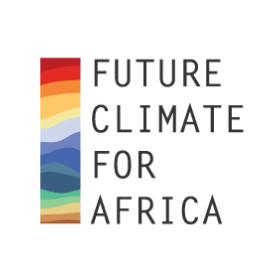
ACDI led a study in scientific capacity development (SCD) in Africa. The SCD study was financially supported by CDKN, on behalf of the Future Climate for Africa (FCFA) research program. FCFA was a 5-year program to enhance scientific understanding and prediction of extreme weather and climate in sub-Saharan Africa. A central component of FCFA involved the development of scientific capacity in Africa, and the SCD study will help to inform FCFA’s scientific capacity development work, including recommendations based on a portfolio of potential SCD activities and approaches for FCFA. Other key outputs included a literature review with detailed case studies, database of SCD activities, and an evaluation framework for SCD activities.
-
Thermotolerance genotypes for sustainable legume production in South Africa

Globally, an increase in atmospheric temperature in unequivocal established with models predicting a continued increase in temperatures of about 1.5°C by the end of the 21st century. Global warming is predicted to negatively affect plant growth and agricultural production especially in tropical and subtropical areas where temperatures are already high due to the damaging effect of heat stress on plant development and seed yield. One of the obvious solutions to heat stress is to select and develop crop species with improved tolerance to heat stress and desirable agronomic traits to maintain economic yield under high temperatures. This project aimed to identify thermotolerant genotypes in three legume species differing in growth habit, usage and production areas and seasons in South Africa.
-
South Africa's Third National Communication to UNFCCC (2015/16)
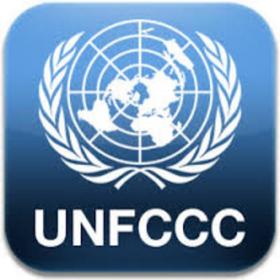
ACDI and CSAG partneeds with CSIR on writing the Impacts and Adaptation chapter of Third National Communication to the UNFCCC. The research will review current trends in climate across the country, projections of future climate, key risks and vulnerabilities in a range of sectors, and progress on adaptation to climate change.